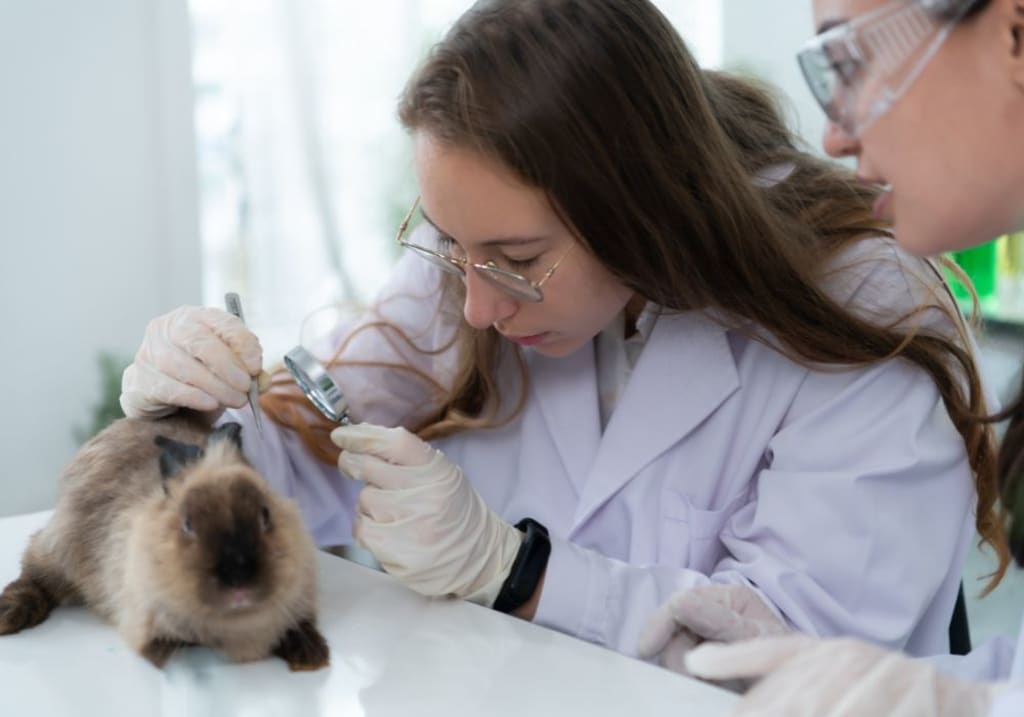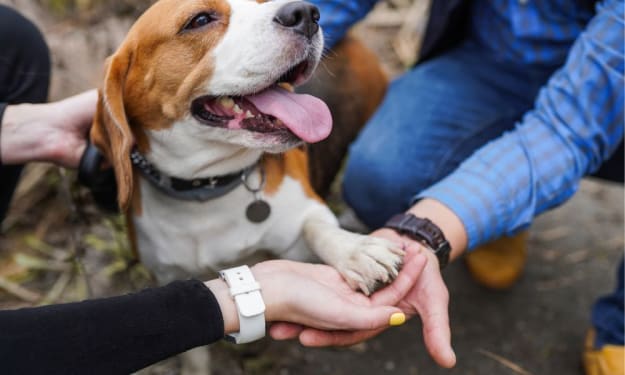
Rabbits are beloved pets that bring joy and companionship to many households. However, one common issue rabbit owners face is the dreaded flea infestation. Rabbit fleas can cause significant discomfort for your furry friend and can even lead to more serious health problems if left untreated. In this comprehensive guide, we'll explore effective strategies for preventing and treating rabbit fleas, ensuring your rabbit's comfort and well-being.
Understanding Rabbit Fleas
Rabbit fleas, scientifically known as Spilopsyllus cuniculi, are small, wingless insects that feed on the blood of rabbits. These parasites can cause intense itching, skin irritation, and even anemia in severe cases. Rabbits are particularly susceptible to flea infestations due to their close contact with the environment and their natural grooming behaviors.
Rabbit fleas can be challenging to detect, as they are small and often hide in the rabbit's fur. However, some common signs of a flea infestation include excessive scratching, hair loss, and the presence of small, dark specks (flea dirt) in the rabbit's bedding or fur.
Preventing Rabbit Fleas
The best approach to dealing with rabbit fleas is to focus on prevention. By taking proactive measures, you can significantly reduce the risk of your rabbit becoming infested. Here are some effective tips for preventing rabbit fleas:
Regular Grooming and Inspection
Regularly grooming your rabbit and inspecting its fur for signs of fleas is crucial. Use a fine-toothed comb to carefully examine your rabbit's skin and fur, paying close attention to areas such as the neck, belly, and base of the tail. This will help you detect any potential flea infestations early on, allowing you to take swift action.
Environmental Cleaning
Maintaining a clean and flea-free environment is essential for preventing rabbit fleas. Regularly vacuum and clean your rabbit's living space, including its bedding, toys, and any areas where it spends time. Dispose of the vacuum bag or contents properly to prevent the spread of fleas. Additionally, consider using a pet-safe disinfectant or insecticide to treat the area and eliminate any potential flea eggs or larvae.
Flea Control Products
There are various flea control products available specifically designed for rabbits. These may include topical treatments, oral medications, or collars. Always consult with your veterinarian to determine the most appropriate and safe option for your rabbit. Follow the instructions carefully and administer the product as directed to ensure its effectiveness.
Outdoor Precautions
If your rabbit spends time outdoors, take extra precautions to prevent flea infestations. Avoid areas with high grass or dense vegetation, as these can harbor fleas. Consider using a flea repellent spray or powder on your rabbit's outdoor enclosure or run.
By implementing these preventive measures, you can significantly reduce the risk of your rabbit developing a flea infestation and ensure its overall health and comfort.
Treating Rabbit Fleas
Despite your best efforts, your rabbit may still encounter a flea infestation. In such cases, it's essential to act quickly and effectively to eliminate the problem. Here are some steps to take for treating rabbit fleas:
Veterinary Consultation
If you suspect your rabbit has a flea infestation, it's crucial to consult with your veterinarian. They can provide a proper diagnosis, recommend the most appropriate treatment options, and ensure the safety and well-being of your rabbit. Your veterinarian may prescribe specialized flea control products or medications to effectively eliminate the infestation.
Comprehensive Cleaning
Treating the rabbit's environment is just as important as treating the rabbit itself. Thoroughly clean your rabbit's living space, including its bedding, toys, and any areas it frequents. Vacuum all carpets, rugs, and upholstered furniture, and dispose of the vacuum bag or contents properly. Consider using a pet-safe insecticide or steam cleaning to eliminate any remaining fleas, eggs, or larvae.
Bathing and Grooming
Bathing your rabbit can be an effective way to remove fleas and their eggs from the fur. Use a mild, pet-safe shampoo and warm water to gently clean your rabbit's coat. Be sure to thoroughly rinse the shampoo to avoid any skin irritation. After the bath, use a fine-toothed comb to carefully remove any remaining fleas or debris from the fur.
Flea Control Products
In addition to the veterinary-prescribed treatments, you may also use over-the-counter flea control products specifically formulated for rabbits. These may include topical treatments, oral medications, or collars. Always follow the instructions carefully and consult with your veterinarian to ensure the safety and effectiveness of these products.
Ongoing Monitoring and Maintenance
Even after successfully treating a flea infestation, it's essential to continue monitoring your rabbit and its environment for any signs of fleas. Maintain a regular grooming and cleaning routine to prevent future infestations. If you notice any recurring issues, consult with your veterinarian to determine the best course of action.
By following these comprehensive treatment steps, you can effectively eliminate a rabbit flea infestation and restore your furry friend's comfort and well-being.
Preventing Reinfestations
Once you've successfully treated a flea infestation, the next step is to prevent it from recurring. Here are some additional tips to help keep your rabbit flea-free:
Consistent Flea Control
Maintain a consistent flea control regimen, as recommended by your veterinarian. This may involve regular application of topical treatments, oral medications, or the use of a flea collar. Ensure that you follow the instructions carefully and adhere to the recommended schedule to keep fleas at bay.
Ongoing Environmental Maintenance
Regularly clean and maintain your rabbit's living environment to eliminate any potential flea habitats. Vacuum and wash bedding, toys, and other surfaces your rabbit comes into contact with. Consider using a pet-safe insecticide or steam cleaning to eliminate any remaining fleas or eggs.
Outdoor Precautions
If your rabbit spends time outdoors, be vigilant about potential flea exposure. Regularly inspect your rabbit's fur and the outdoor area for any signs of fleas. Use flea repellent products and avoid areas with high grass or dense vegetation, where fleas are more likely to thrive.
Holistic Approach
In addition to the above measures, consider incorporating a holistic approach to flea prevention. This may include providing your rabbit with a balanced diet, ensuring proper grooming and hygiene, and supporting its overall health and immune system. A healthy rabbit is less susceptible to flea infestations.
By implementing these preventive strategies, you can significantly reduce the risk of your rabbit experiencing a recurring flea infestation and maintain its comfort and well-being.
Conclusion
Dealing with rabbit fleas can be a challenging and frustrating experience, but with the right knowledge and proactive measures, you can effectively prevent and treat these pesky parasites. Remember to work closely with your veterinarian, maintain a clean and flea-free environment, and use appropriate flea control products to keep your rabbit happy and healthy.
By following the tips outlined in this comprehensive guide, you can ensure your rabbit's comfort and well-being, and enjoy a flea-free home for both you and your furry companion.
About the Creator
Hasan
Welcome...
In this site of mine you can learn amazing things and many information that you don't know so please subscribe to my site.
Enjoyed the story? Support the Creator.
Subscribe for free to receive all their stories in your feed. You could also pledge your support or give them a one-off tip, letting them know you appreciate their work.






Comments
There are no comments for this story
Be the first to respond and start the conversation.